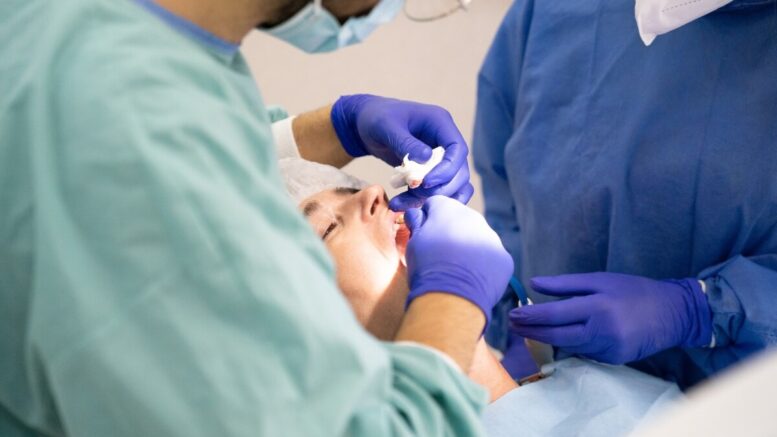Do you have missing or broken teeth? If so, you are not alone. Millions of people worldwide have dental issues that need to be solved. Dental implants are one of the most popular dental procedures today, especially at this dentist in Irvine. The procedure is generally very quick and can be done in just a few hours. The implant itself is placed into the jawbone, which will then fuse with it to create a sturdy foundation for your tooth or teeth. This article will discuss the different types of dental implants to choose the one that is best for your needs.
What are Dental Plants?
Dental implants are artificial teeth that are implanted into the jawbone. The implant is made of titanium, which will fuse with the jawbone over time to create a sturdy foundation for your tooth or teeth. Implants can be used to replace one or more missing teeth. It is essential to know what it will cost to have dental implants as the procedure varies depending on the required type of implant. Other factors that come into play include the dentist’s fee, the location of the dental clinic, and any additional treatments that you may require.
What are Dental Implants Made Of?
Dental implants are made of titanium, which is a biocompatible material. This means that it is safe for your body to have in place and will not cause any adverse reactions. The implant will fuse with the jawbone over time to create a sturdy foundation for your tooth or teeth. It is essential to have the procedure carried by a qualified dentist.
What are the Different Types of Dental Implants?
Dental implants are classified into two main types: endosteal and subperiosteal. Endosteal implants are inserted into the jawbone below the gum line. Subperiosteal implants are placed on top of the jawbone and support your teeth until they fuse with it.
There are also different types of endosteal dental implants that you can choose from based on what works best for you. They include:
- Standard Implant – It is a cylinder-shaped implant placed into the jawbone. This type of dental implant takes longer to fuse with the jawbone than other types because it does not have an internal threading system, which means less surface area for bone cells to attach themselves to. The main benefit of the standard implant is that it does not have a protruding appearance. This means they are ideal for people who want to blend in their implant with the color of their teeth.
- Endosteal Screw is used when there isn’t enough jawbone available because of an injury or disease, such as osteoporosis or infection. The endosteal screw implant is inserted into the jawbone, and a threaded post will be attached to it. This type of implant is more commonly used because it quickly fuses the jawbone due to its internal threading system.
- Titanium Plate is similar to the endosteal screw but has a flat surface that makes it ideal for people with the narrow jawbone. The titanium plate implant is inserted into the jawbone, and a securing screw is used to hold it in place.
Subperiosteal implants are placed on top of the jawbone and support your teeth until they fuse with it. There are two main types of subperiosteal implants:
- Ball Implant – It is a small, round implant placed on top of the jawbone. The ball implant has a protruding appearance and is used with enough bone to support it.
- Shell Implant – It is an oval-shaped implant placed on top of the jawbone. The shell implant is less visible than the ball implant and is used when there isn’t enough bone to support a ball implant.
Which Type of Dental Implants Is Right for Me?
Now that you know about the different types of dental implants, it is essential to determine which one is right for you. You can do this by consulting with your dentist. Your dentist will consider factors such as the amount of jawbone available, whether you smoke or consume alcohol regularly, and other health conditions that may affect bone loss. It is essential to visit your dentist as soon as possible to find out what type of dental implant is right for you.

What Are the Potential Risks Associated with Dental Implants?
Some risks are associated with getting a dental implant, such as infection and rejection. However, you can avoid these risks by visiting your dentist regularly after the procedure. Your doctor will also prescribe antibiotics and other medications to help reduce the risk of infection.
It is essential to keep in mind that dental implants are a permanent solution, so it is best to consult with your dentist before deciding. Dental implants are a great way to replace missing teeth and improve your oral health. With proper care, they can last for many years.
